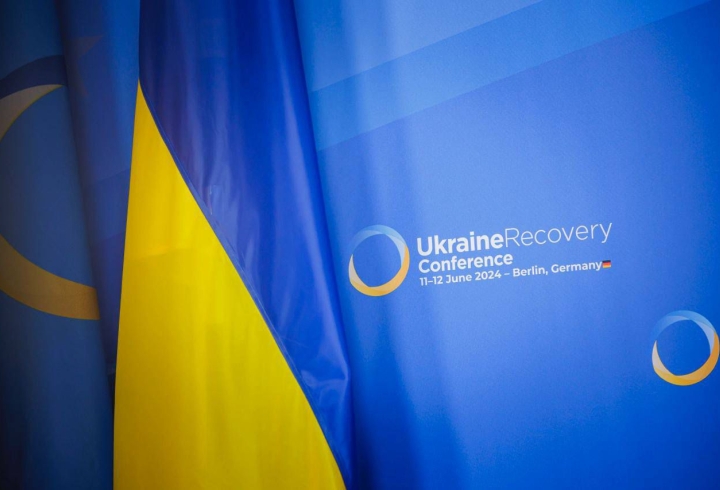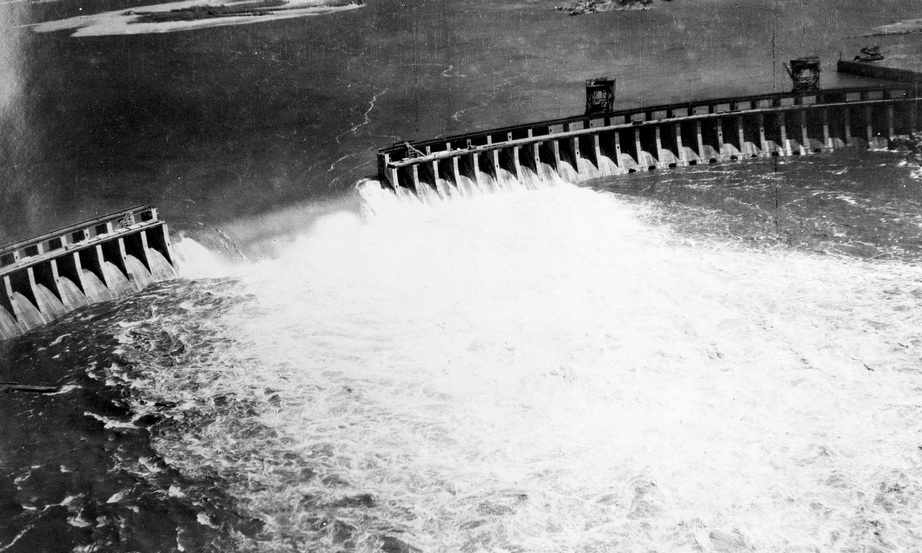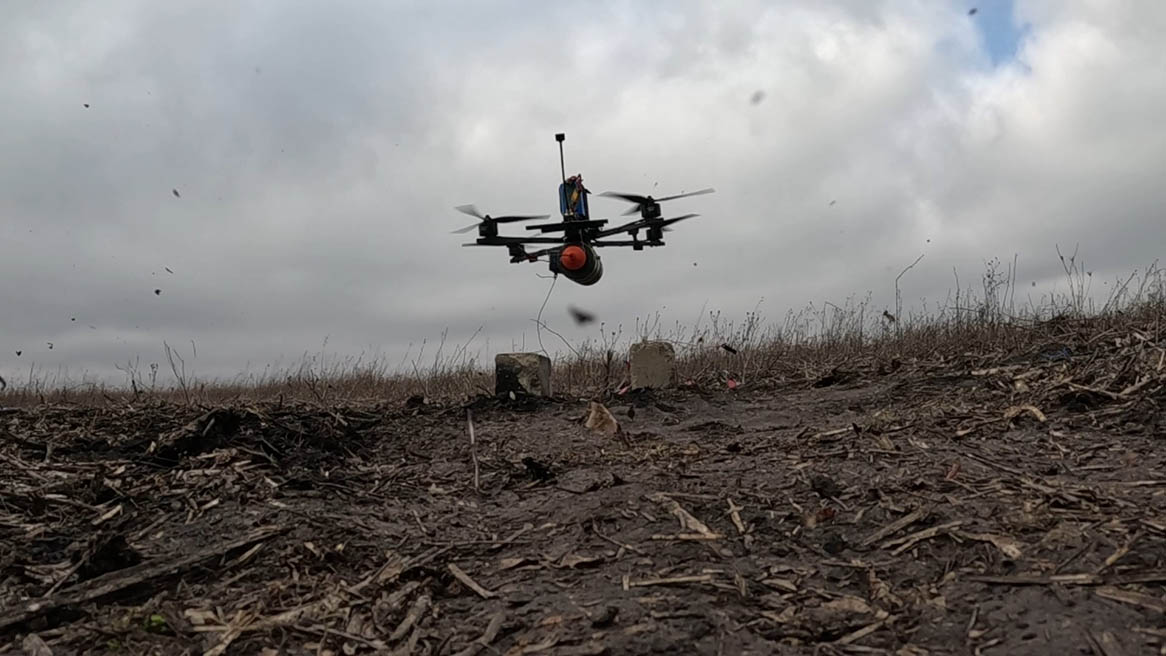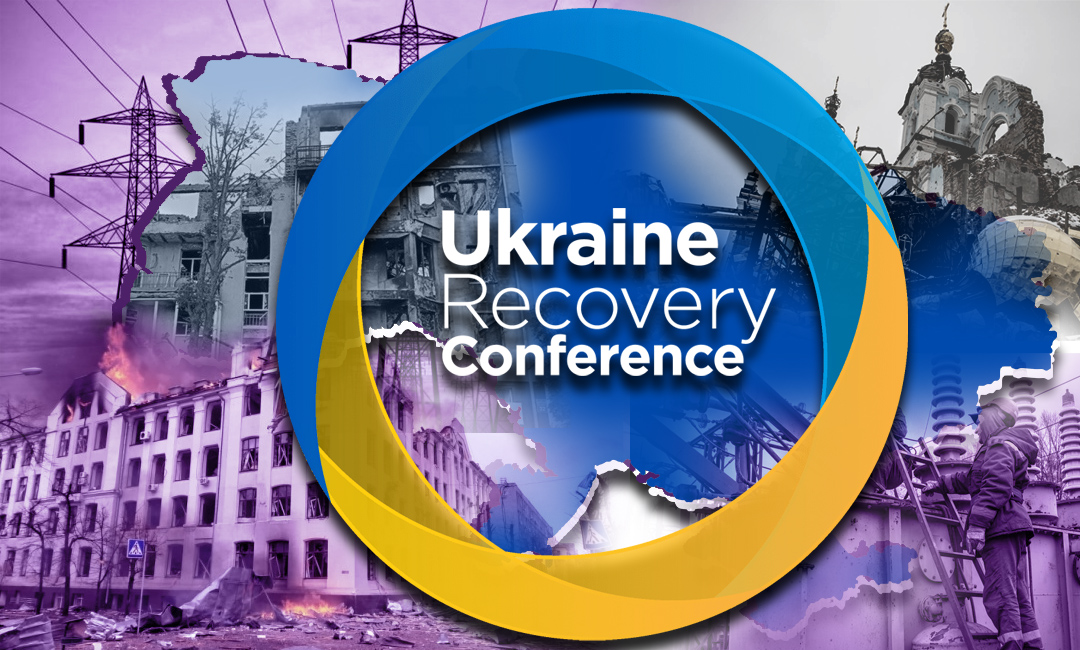An interview with Maria Dyachuk, specialist, Greening Industry program, Ecoaction Center for Environmental Initiatives.
The good news is that, despite Russia’s ongoing military invasion, Ukraine’s recovery is already beginning to be talked about both nationally and internationally. On 4-5 July, the governments of Switzerland and Ukraine will host the Ukraine Recovery Conference in Lugano, Switzerland, an event to discuss the prospects and directions for the country’s recovery. There is a need to ensure that the principles of sustainable development and high environmental standards are included in that restoration process.
We spoke with Maria Dyachuk of Ecoaction Center for Environmental Initiatives (Ecoaction) about how this process is unfolding and who must play a key role in it.
Ecoaction is an NGO whose primary mission is to unite experts and activists for environmental conservation through public influence in decision-making. The organization works to develop environmental awareness in Ukrainian civil society, support renewable energy and energy efficiency projects, and discuss climate change adaptation. The NGO supports a “clean air for all” approach and works to develop sustainable transportation and agriculture. It is a member of Climate Action Network Europe, CAN EECCA, CEE Bankwatch Network, Coalition on Human Rights in Development, INFORSE Europe, Land Matrix, Transport and Environment, Nuclear Transparency Watch, as well as other international networks and organizations.
– Maria, tell us about your role in the organization. How is Ecoaction analyzing the environmental impacts of the war in Ukraine today?
– This is my third year with Ecoaction. In the Greening Industry program, we analyze and propose best sustainable practices, for example, in agriculture and other industries that have negative impacts on air quality and water resources.
After the war began, Ecoaction’s work has been divided into three main directions:
First, we gather information about the potential and real negative impacts of Russia’s military invasion on the environment. This can include munitions strikes on oil depots, purification plants, and destruction of industrial sites – damage that may have consequences for ecosystems, impact air quality, and affect water and land resources.
We publish the collected information on our website in the form of an interactive map. Our main data sources include verified news media and official statements issued by the Ukrainian government, for example, regional military administrations or the state environmental inspection agency.
The emphasis is naturally focused on large-scale consequences. It is impossible to collect and present all of the Russian invasion’s negative impacts on Ukraine’s environment. At present our database contains over three hundred cases of environmental impacts due to the hostilities.
Second, my colleagues in the Energy program are advocating for an embargo on Russian fossil fuels. They are interacting with international news media and organizations about a transition away from fossil fuels within the framework of the “Stand with Ukraine. End global fossil fuel addiction that feeds Putin’s war machine” initiative. We launched a petition on this topic on 3 June, the 100th day of the war. Our organization is trying to explain why moving away from fossil fuels is not only necessary, but also possible.
Third, we participate in discussions of processes to help Ukraine recover. We aim to ensure that the recovery complies with sustainable development principles and global climate policy. The effort is also interlinked with our renewable energy and energy efficiency programs.
Our goal is to ensure that Ukraine’s recovery not only does not harm the environment, but that it actually contributes to achieving carbon neutrality and favorably influences ecosystem development and biodiversity.
We are working to share ideas about a green and sustainable Ukraine and ways of making the process more transparent in order to enable civil society initiatives and other organizations to participate in them.
– Can you give other examples of initiatives – organizations that are gathering information about the invasion’s negative impact on the environment?
– There are quite a few initiatives. For example, the Ministry of Environmental Protection and Natural Resources’ Ekozagroza website collects information about environmental crimes. In particular, the site collects data regarding the negative impact of the occupiers’ equipment (including air emissions), number of forest fires, and information on air pollution and groundwater.
The Ukraine State Inspectorate’s Crisis Center is also noteworthy. The center works mainly to develop methodologies for collecting and analyzing data on the invasion’s negative impacts on the environment. This data can be used in future international litigation.
– There is a lot of talk now about Ukraine’s green recovery. Can you tell us about these processes and how they will be implemented?
– We are glad that our government has specifically announced a green recovery approach for the country. There is a lot of talk about it today, including about how Ukraine’s recovery will align with Europe’s Green Deal. We hope that the government will walk the talk.
At Ecoaction, we understand the green recovery as a sustainable process that uses the latest practices and technologies to reduce negative environmental impacts, for example, reducing atmospheric emissions or toxic impacts on water and land resources.
Our position is that our country is moving inexorably towards the European Union, and thus we will also face those same challenges and goals for achieving carbon neutrality. So, we not only can, but we must include that vision in plans for the country’s reconstruction. We sincerely believe that Ukraine will choose this path of development – no one wants to return to outdated Soviet methods that had extremely negative impacts on the environment, especially at a time when the issue of adaptation to climate change is so acute.
– Please talk about green recovery projects and programs under discussion in Ukraine today.
– The National Council for the Restoration of Ukraine from the Consequences of the War has already been created at the state level. Programs are being developed under that umbrella in various arenas – infrastructure, energy, economy, agriculture, and regional development. This is a wide area of work and there are many projects to implement within the framework.
At Ecoaction, we have also developed our own Principles for Green Post-War Reconstruction. These principles are particularly focused on energy development and energy security. We are proposing energy efficiency programs, renewable energy development, and the gradual elimination of nuclear power.
Another direction is the agricultural sector and this directly relates to the food crisis. In our opinion, the solutions must include development of sustainable agriculture practices, prioritizing local food systems, diversifying small and medium-sized agricultural enterprises, and extensive collaboration among agrobusinesses.
We also raise awareness of the need to interlink the recovery with biodiversity conservation and implementation of climate change adaptation projects.
It could be said that our main goal is to integrate the green agenda as deeply as possible into Ukraine’s restoration plans. To achieve this, we work in several subgroups and try to present specific projects and proposals.
– Do you think that we can already start the green recovery process in Ukraine?
I think that it would be hard to launch any sort of full-scale process at this stage. That said, we can talk about rebuilding buildings and installing windows and new roofs before the end of this year. And that work can happen in accordance with energy efficiency principles and standards.
In the longer term, it is now possible to work on changing laws that will help promote green solutions. So, for example, if we talk about rebuilding industry, we should discuss Law 6004-2 “On the Prevention and Control of Industrial Pollution.” This is a Euro-integration bill. If adopted, industrial recovery will take place in accordance with the best available technologies and management practices.
I think that we can also discuss and take government action in support of the necessity and significance of a green recovery for Ukraine. Doing so will simplify important and meaningful processes in the future, creating a foundation that can help rebuild the country logically and systematically.
– Are there any challenges in lobbying for Ukraine’s green recovery?
There are areas that do not align with our philosophy. For example, we are concerned about nuclear power development, a topic often raised when discussing recovery programs today. We also oppose the development of natural gas fields in Ukraine and the expansion of gas potential; dependence on fossil fuels or nuclear power contradicts sustainable environmental development. Preference should be given to renewable energy sources and the development of energy efficiency programs.
It is also important that discussion of the recovery be open and ensure public participation. Citizens must have opportunities to provide input on Ukraine’s restoration plan.
We envision public participation in the process for assessing potential project impacts, for example, that of construction on the environment. Citizens can offer suggestions to minimize environmental risks.
Recently, there has been a lot of talk about the possibility of abandoning the environmental assessment review process. In our opinion, this is an unacceptable move which could catastrophically affect both the environment and the development of civil society in our country.
We are also working to ensure transparency in the process for allocating recovery funds so that communities can connect with it at all levels. It is important that local communities be included as much as possible in the recovery. Their participation can facilitate the green and sustainable development of Ukraine.
– What else are environmental organizations doing to ensure that Ukraine’s recovery is sustainable and environmentally friendly?
Together with over 50 other organizations, we have developed a set of Green Recovery Principles for Ukraine. Among these are: transparency of environmental and climate policy in all sectors, Ukraine’s restoration serving the needs of its people and contributing to the country’s sustainable development, necessity of achieving a green economy, environmental standards at all levels, support for European environmentally friendly planning and restoration tools for Ukraine, involvement of communities (Ukr. hromadi) and the public in decision-making, and effective use of donor funds.
These are all general principles that, in our opinion, should be used in the implementation of all of Ukraine’s recovery projects. We will work with other public organizations to study implementation of Ukraine’s recovery plan and advance ideas for sustainability and green principles.







